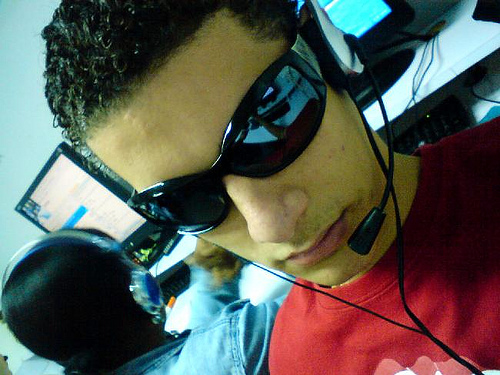
A powerful community depends upon its members' willingness to step outside themselves and stand in the shoes of their neighbors. A name for this ability is "empathy." It is the essential bridge that changes the person next door from a resident into a neighbor. Without empathy, we would have neither friends, neighbors nor a community.
The Institute for Social Research at the University of Michigan recently completed a review of 72 studies of empathy among American college students. Each study used the same standardized test. The Institute found that in the last 20 years there has been a drop of 40 percent in empathy among U.S. college students.
For many years John worked at a social science research center, and it is very rare to find that much attitude change over such a short period of time. What happened between 1990 and present that could erode such a basic human quality as empathy?
The Institute's researchers have three hypotheses that they are proceeding to test. The first is that during the last 20 years, the 24-hour television news cycle developed, providing powerful visualizations of crime, disasters, wars, conflict and the like. This constant bombardment of dramatic visual human crisis may have desensitized a generation of young people to the suffering and fate of others.
Second, the college students are the first generation to have "friends" online. That experience creates artificial relationships where people don't have to respond to others unless they feel like it. Every "cyber-friend" is a person who can be "shut down" at will.
Finally, the researchers, who are young people themselves, suggest "reality television" stimulates a hyper-competitive youth culture that results in a "me generation."
All of these hypotheses point to television or the Internet as the basic cause of our young peoples' loss of empathy. If the research measures are accurate, this loss foretells a major weakening of the power of our community life in the years ahead.

What is the antidote? Some will say that we should develop a school curriculum that "teaches" students about empathy, reminiscent of the outsourcing from communities to schools of "values education" and "character development." The problem with schooled empathy, of course, is that empathy is a feeling for another person. To gain that feeling, the other must be present in our lives and not an abstraction on electrical machines or in classrooms. The shoes we learn to walk in are real shoes, and not shoes in pictures or words.
Another antidote is the culture of each of our families. We can define the family time consumed by television, electronic games and the Internet; however, that often results in parents becoming unpopular censors. And like most new responsibilities placed on family, parents find little support for their action unless they live in a neighborhood where neighbors are a "village" organized to help raise their children. In this village, neighbors create a community culture that supports individual families and provides young people with a way to escape the electronic village.
Creators of this community way recognize that the electronic village has electric games, canned music, scripted stories and typed friendships. Each is a counterfeit for the real, empathy-building experience. So what is the real way of a neighborhood? There are many possibilities. Here are just a few:
- Have neighborhood games that involve all the children. Time was, evenings were spent in the schoolyard in a game of pick-up basketball or mixed softball, or on the street playing kick-the-can or stickball. No electronic game could have ever lured us away.
- Listen to real music made by neighbors -- a block band of young and old, as well as community talent shows.
- Collect real, rather than scripted, stories told by every neighbor, and videos of the neighborhood's stories created by young people.
- Have block celebrations that bring us together to enjoy birthdays, graduations, marriages and special recognitions for young people who have contributed to the community's life.
These are just a few initial possibilities. You can think of many more experiences that engage you, your family and neighbors in the real life relationships that build empathy -- the kind of experiences that will help us be a village that doesn't create children who grow up desensitized and care-less.
***
John McKnight is emeritus professor of education and social policy and co-director of the Asset-Based Community Development Institute at Northwestern University. He is the co-author of "Building Communities from the Inside Out" and the author of "The Careless Society." He has been a community organizer and serves on the boards of several national organizations that support neighborhood development. Peter Block is founder of Designed Learning. They are coauthors of "The Abundant Community: Awakening the Power of Families and Neighborhoods" (Berrett-Koehler).
For more commentary from McKnight and Block, visit their website, www.AbundantCommunity.com
Photo credit: Remo del Orbe